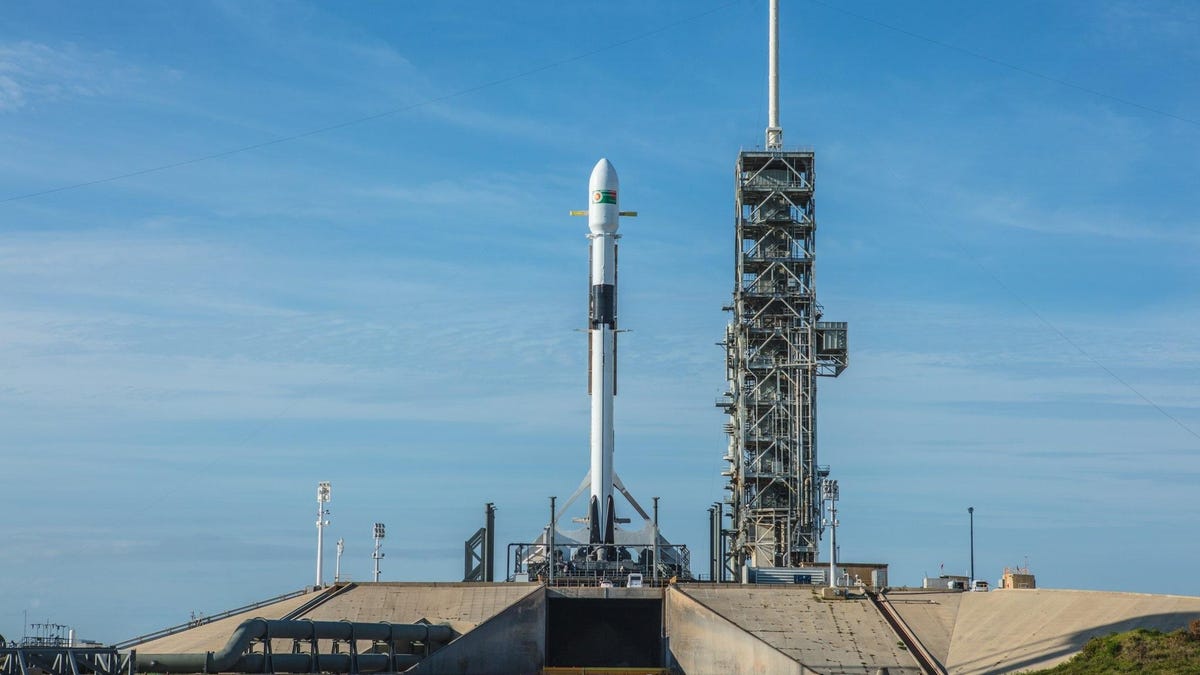SpaceX aborts first 'Block 5' Falcon 9 launch
Elon Musk's company wasn't quite able to send a rocket to space that's designed to fly 100 times. It'll try again soon.

The first Block 5 Falcon 9 at Kennedy Space Center.
SpaceX got very close to launching the final "Block 5" version of its Falcon 9 rocket for the first time Thursday, but the mission is now delayed until Friday afternoon at the earliest.
Just about a minute before scheduled liftoff at 5:47 p.m. ET, the launch computer aborted blastoff shortly after it entered its startup mode. We're still waiting to find out the cause, but such an error is a safeguard and not that unusual.
Standing down today due to a standard ground system auto abort at T-1 min. Rocket and payload are in good health—teams are working towards tomorrow’s backup launch opportunity at 4:14 p.m. EDT, or 20:14 UTC.
— SpaceX (@SpaceX) May 10, 2018
The rocket was set to carry the Bangabandhu satellite-1, the first satellite for Bangladesh, into orbit from Kennedy Space Center in Florida.
Block 5 represents the final suite of upgrades to its workhorse launch system that CEO Elon Musk says is designed to be flown up to 100 times.
Before the launch, Musk said in a call with reporters that he was "stressed" and that orbital rockets are hard enough, but building one that can fly 100 times is "crazy hard."
Musk said he'd like to see a single Block 5 rocket fly three or four times by the end of 2018. The SpaceX founder also said he hopes to demonstrate that the same rocket can be launched, landed and then launched again with 24 hours.
Such turnaround time would be unprecedented, like much of what SpaceX has accomplished in the past few years.
Whether a single Block 5 rocket ever does fly 100 times remains to be seen. Musk says the model will likely be retired after about 300 flights and that SpaceX plans to build 30 to 50 Block 5 rockets. With that many laying around, it seems unlikely any will need to fly 100 times before the company moves on to its next big thing, the "BFR" rocket Musk hopes will take humans around the world, to the moon and Mars.
But for this week, SpaceX and Musk are focused on just getting Block 5 off the ground the first time. They'll have a chance to try again Friday, when the launch window of about two hours opens at 4:14 p.m. ET.
CNET Magazine: Check out a sample of the stories in CNET's newsstand edition.
'Hello, humans': Google's Duplex could make Assistant the most lifelike AI yet.

